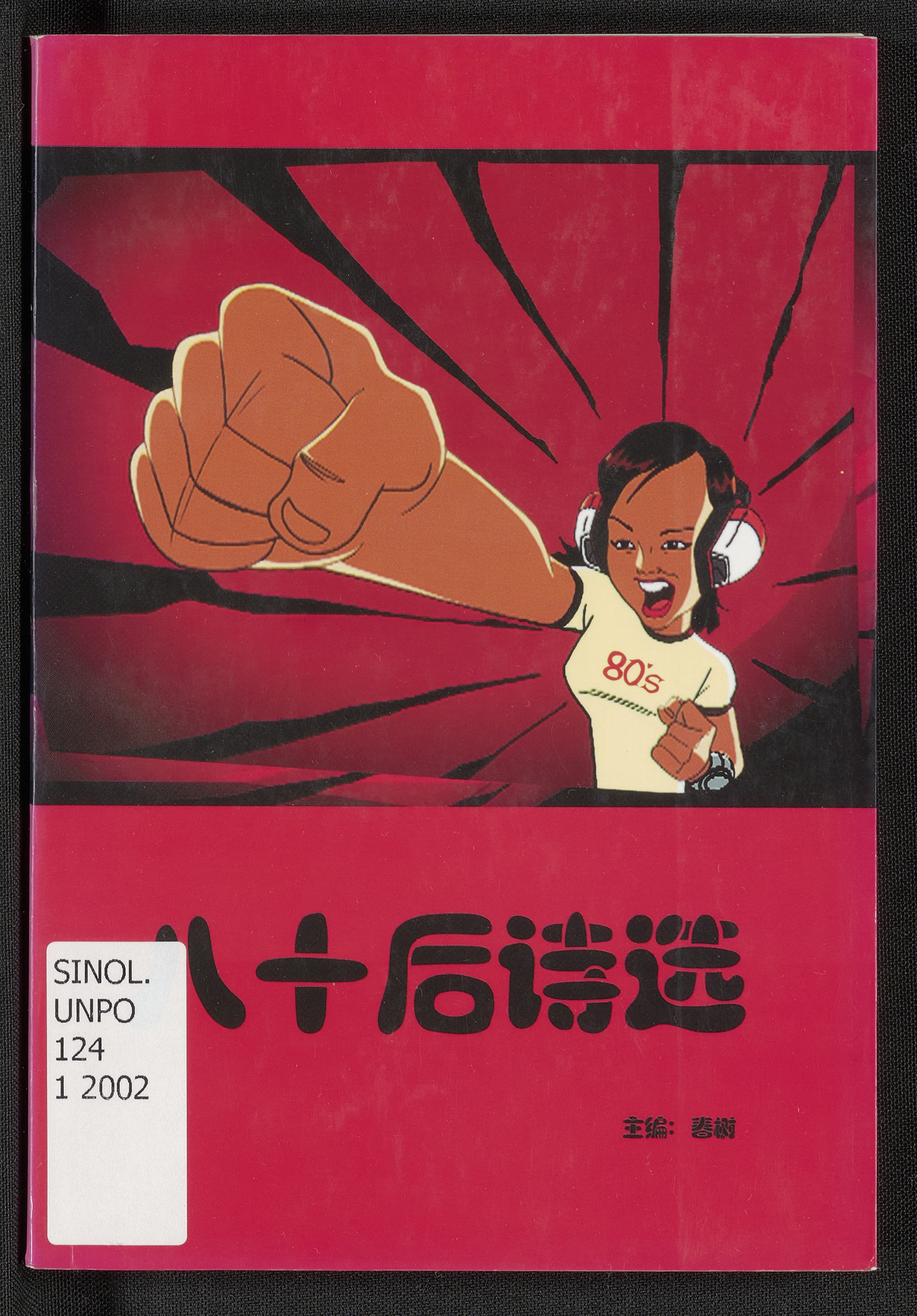
From Underground to Overground, from Print to Digital: A Symposium on Unofficial Poetry from China
Leiden University Libraries holds an internationally unique collection of unofficial poetry from China. Produced outside the System over the last fifty years or so, this poetry is hugely influential yet hard to find beyond the informal networks through which it travels. To address this paradox, the print collection has been flanked by a digital collection since 2019. This year’s upgrade will make some 25,000 pages of new material freely accessible online and take the digital collection to about 100,000 pages in all: journals, single-author books, and multiple-author anthologies.
To celebrate the DIY tradition of unofficial poetry, Leiden University Libraries will host a symposium in the Vossius room on Friday 22 November from 15.15 to 17.00 CET, followed by drinks.
Due to the selected cookie settings, we cannot show this video here.
Watch the video on the original website orSpeakers
Marc Gilbert (Leiden University Libraries):
Unofficial Poetry Publications from China: Where Every Word Counts.
Zhou Zan (Chinese Academy of Social Sciences):
Who Made and Makes the Space for Unofficial Poetry?
Nanne Timmer (Leiden University):
Unexpected Cuban-Chinese Connections: Poetic Contagions and Samizdat Writing.
Bao Hongwei (University of Nottingham):
Queer Poetic Voices in Unofficial Journals.
Four speakers who combine a love of (writing) poetry with other identities will offer personal reflections to “talk back” to the collection, with no holds barred and plenty of room for Q&A: curator of the special collections Marc Gilbert, scholar of Chinese literature Zhou Zan, scholar of Cuban literature Nanne Timmer, and queer studies scholar Bao Hongwei (see above for their affiliations and the titles of their talks). Zhou Zan is also the editor of the unofficial women’s poetry journal Wings and of an affiliated women’s poetry book series that will hopefully become part of the digital collection in the near future. She will visit from Beijing for the occasion and speak from firsthand experience inside the Chinese poetry scene. Maghiel van Crevel, who built the print collection and initiated its digitization, will MC.

Symphony of the Fire God and The Third Generation
Material for this year’s upgrade includes two true gems from the early years. One is Huang Xiang’s Symphony of the Fire God, written in the underground during the Cultural Revolution and first published in 1979. The Symphony is a product of the Guiyang-based Enlightenment group whose journal spearheaded the growth of the unofficial circuit. The other is The Third Generation, a 1983 journal edited by Bei Wang and Zhao Ye. One of many journals made in Sichuan Province, its name lives on as the designation of one of the major trends on the late 20th-century Chinese poetry scene: Third Generation poetry.
Both texts are exceedingly rare. The Symphony is a gift from Shizhongren, the foremost collector of unofficial poetry inside China. The Third Generation is a gift from Chengdu-based poet and critic Zhong Ming. As such, they embody support from within the Chinese poetry community for the Leiden print and digital collections.


Post-80 Poetry
Decades younger than the above two items, the Post-80 Poetry series is a starkly different addition to the digital collection. Compiled in the early 2000s by Chun Sue, famous for her autobiographical rock-n-roll novel Beijing Doll, it shows poets born in the 1980s churning out irreverent, provocative work that drove establishment critics up the wall. In true unofficial style, the Post-80 Poetry volumes won’t let themselves be pinned down as either journals or books. This highlights one of many cataloging challenges brought on by material that won’t play by the rules: think ISBN/ISSN numbers (as in no numbers, fake numbers, etc), idiosyncratic colophon information, imaginary publishing houses, and so on.

The Black Whistle Poetry Project
A fourth item in this year’s upgrade, the Hangzhou-based Black Whistle Poetry Project is a beautiful example of unofficial poetry books (as distinct from journals) from the first decades of the 21st century. Exquisitely designed, these books further illustrate the diversity of the DIY tradition as this emerged amid China’s frenzied socioeconomic transformation. Black Whistle exemplifies unofficial poetry’s threefold motivation: documentation, the circumvention of censorship, and bibliophilia – the snaplinks on Xiao Zhao’s Bridges Burned (pictured here) are real.

Poetry as a Social Practice
These moments in Chinese poetry share a considered decision to stand outside the System. They do so as part of a cultural tradition that is akin to anti-establishment and extra-establishment literatures in other places. Examples include samizdat writing in the Soviet Union, poetry workshops for emancipating vulnerable communities in the contemporary US, all manner of worker poetry initiatives in countless places around the world, and so on. All this flows from the power of poetry as a social practice, in China as elsewhere, from antiquity to the present day.
Use and support
The Leiden University Libraries print and digital collections of unofficial poetry from China are used by general readers, students, researchers, and translators around the world. Their interest in this precious material shows the need to safeguard it and make it widely accessible. Guidance and support from poets and editors in the source community have been crucial to building the print and digital collections. Financial support from Dr. Freerk Heule and collaboration with the Fudan University library in Shanghai have enabled the digitization project to truly take off.
